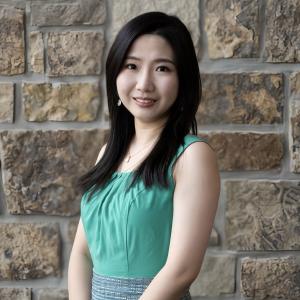
Scholar of Chinese literature and gastronomic writing, Wandi Wang researches a 13th century Chinese cookbook
Dr. Seuss may have written about green eggs, but poet Du Fu 杜甫 (712–770), one of the most important figures in Chinese literary history, wrote about green food in his famous poem “Huai-Leaf Cold Noodles” 槐叶冷淘. The detailed recipe based on the poem appeared in Pure Offerings in the Mountains 山家清供, one of the oldest surviving standalone cookbooks in China, dating from the thirteenth century. Wandi Wang is translating the cookbook and has classified it not just as a collection of recipes, but as a masterpiece of literature.
Lin Hong 林洪 (fl. 1224–1263), the author of Pure Offerings in the Mountains, was known as a “Rivers and Lakes poet,” but most of his poetry was lost. Wang, assistant professor of Chinese, explains he wasn’t a scholar-official poet with a post because he didn’t pass China’s civil service examination at that time. The cookbook, while a way to attract attention, wasn’t just a cookbook like we’d imagine today. “He discussed a lot of poetry…He quoted his own poetry, as well as poetry from his contemporaries and earlier voices, to show that he was very knowledgeable,” Wang remarks.
Wang is working on a monograph, tentatively titled Taste and Gastropoetics in Traditional China, that explores gastronomic writings by literati in the Song dynasty (960–1279). “I focus on the Song dynasty because that's when gastronomic writings emerged,” she notes. In many ways, Song dynasty food culture marks China’s first historical moment that closely parallels the dynamics of modern gastronomic culture.
Read the full story on the College of Arts and Sciences News.
Spotlight Recipient

Wandi Wang
Assistant Professor of Chinese
